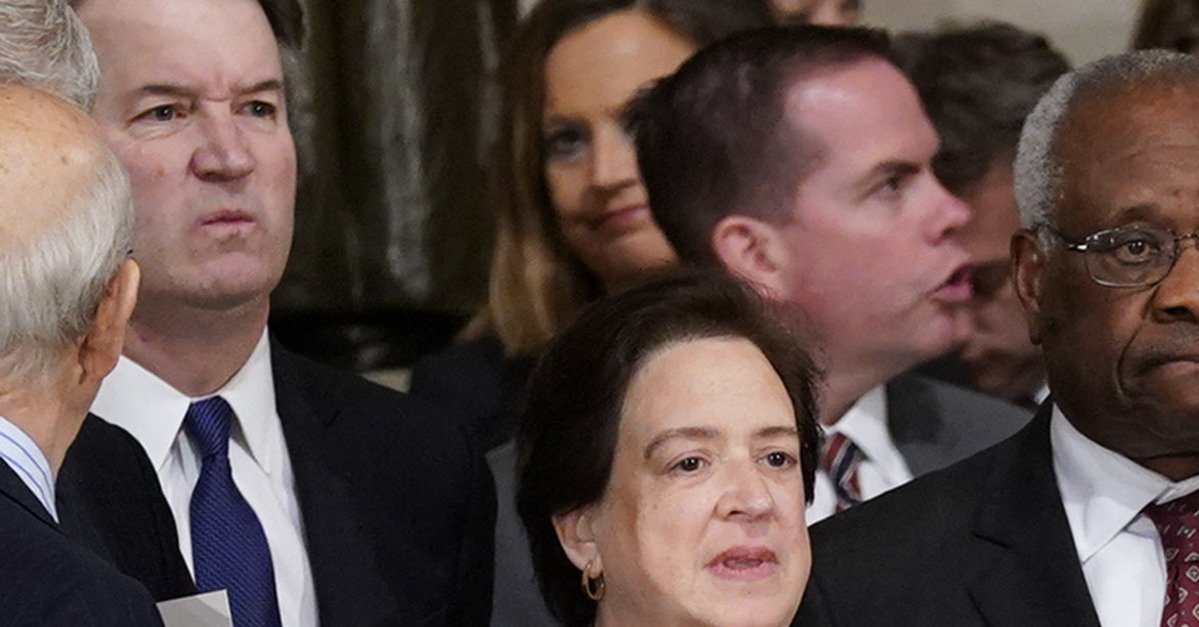
In what represented the only Supreme Court decision Wednesday with a true ideological split, the Court held that a California law requiring agricultural employers to allow workers union organizers on the premises amounted to an unconstitutional taking that violated the employers’ property rights.
The conservative wing of the Court was in alignment, if not total agreement, in the case of Cedar Point Nursery v. Hassid, with Chief Justice John Roberts delivering the 6-3 majority opinion. Roberts was joined by Justices Clarence Thomas, Samuel Alito, Neil Gorsuch, Brett Kavanaugh, and Amy Coney Barrett.
Justice Stephen Breyer wrote the dissent, joined by Justices Sonia Sotomayor and Elena Kagan.
The plaintiffs were two fruit sellers in California, Cedar Point Nursery and Fowler Packing Company. They sued the state, and the Agricultural Labor Relations Board chair Victoria Hassid, over a 1975 regulation that allowed union organizers to have temporary access to an agricultural employer’s property during non-work hours, three times a day for 120 days each year, in order to talk to the workers.
California defended the regulation as necessary to protect farmworkers because they tend to be inaccessible by other means, moving where work is needed, often living in temporary housing, and not always having reliable access to phones and other technology.
The fruit growers argued that the law created an easement that amounts to a per se “taking,” which would require compensation under the Fifth Amendment. The Pacific Legal Foundation, which represented Cedar Point and Fowler Packing, described the union organizers as trespassers who disrupted work and used bullhorns to intimidate staff in order to recruit union members.
The Court sided with the companies, and held that the California regulation amounted to a per se taking because it “appropriates for the enjoyment of third parties (here union organizers) the owners’ right to exclude,” which the Court said was a “‘fundamental element of the property right.’”
Justice Breyer said in his dissent that the regulation did not appropriate the property owners’ right to exclude, just regulated it. Breyer also said that because the regulation allowed only temporary access to the property, subject to restrictions and limitations, it did not amount to a per se taking.
At oral argument in March, Court watchers seemed to think that most of the justices weren’t buying the property owners’ arguments, and legal observers had expressed concern that the decision in this case could have serious consequences outside of property rights, including on anti-discrimination and child protection laws.
“The dispute threatens havoc just as great outside the union context,” attorney and law professor Aaron Tang wrote for the Washington Post at the time. “Consider state laws that permit child protection inspectors to make unannounced home visits. Now suppose a homeowner suspected of abuse or neglect wants to keep the inspector out. Under the [employers’] logic, such individuals would have a Fifth Amendment right to do so—unless the government paid the suspected abuser to access the property. The same problem would ensnare nursing home visits and food safety inspections.”
The majority opinion didn’t address these possibilities directly, but instead made a somewhat oblique reference to these concerns before dismissing them. The Court drew a distinction between private property and places that are open to the public, implying that regulations of who is allowed in public places would not be considered a taking the way the would be for private property.
“Restrictions on how a business generally open to the public such as the PruneYard may treat individuals on the premises are readily distinguishable from regulations granting a right to invade property closed to the public,” the Court said, citing the 1980 case of PruneYard Shopping Center v. Robins, which recognized the right of individuals to hand out leaflets at a privately owned shopping center over the shopping center’s right to exclude.
“Unlike the growers’ properties, the PruneYard was open to the public, welcoming some 25,000 patrons a day,” the Court also said.
The dissent said that PruneYard should have determined the outcome in Cedar Point, because the prior case held that the taking was “temporary,” and therefore not a “per se taking” requiring compensation under the Fifth Amendment. Justice Breyer also pointed out the wide range of regulations allowing access to private property that don’t (yet) constitute a taking under the law.
“Consider the large numbers of ordinary regulations in a host of different fields that, for a variety of purposes, permit temporary entry onto (or an “invasion of”) a property owner’s land,” Breyer wrote. “They include activities ranging from examination of food products to inspections for compliance with preschool licensing requirements.”
Justice Kavanaugh issued a relatively brief concurrence. He agreed with the majority’s reasoning, but added to it by saying that an older Supreme Court case, NLRB vs. Babcock and Wilson, supports the outcome in Cedar Point (the majority had said Babcock didn’t apply here). Babcock, Kavanaugh said, recognized that employers “have a basic Fifth Amendment right to exclude from their private property.”
Needless to say, the agricultural employers were happy with the decision, framing it as a victory for freedom and property rights.
“This decision protects everyone’s freedom to decide for themselves who is—and is not—allowed on their own property,” Cedar Point Nursery owner and president Mike Fahner said in a statement. “We’re very happy with the Court’s ruling today, and we’re excited to keep running our businesses without unlawful interference.”
The California Agricultural Labor Relations Board, on the other hand, called the decision disappointing.
“We are disappointed in today’s decision however we remain unwavering in our duty to ensure that farmworkers are able to exercise the rights afforded to them under the California Agricultural Labor Relations Act,” Hassid said in a statement to Law&Crime. “We are carefully reviewing today’s decision and evaluating next steps to determine how best to ensure farmworkers can learn about the labor rights provided to them under the Act.”
Read the Supreme Court’s decision, below.
[Image via Pablo Martinez Monsivais – Pool/Getty Images]
Have a tip we should know? [email protected]